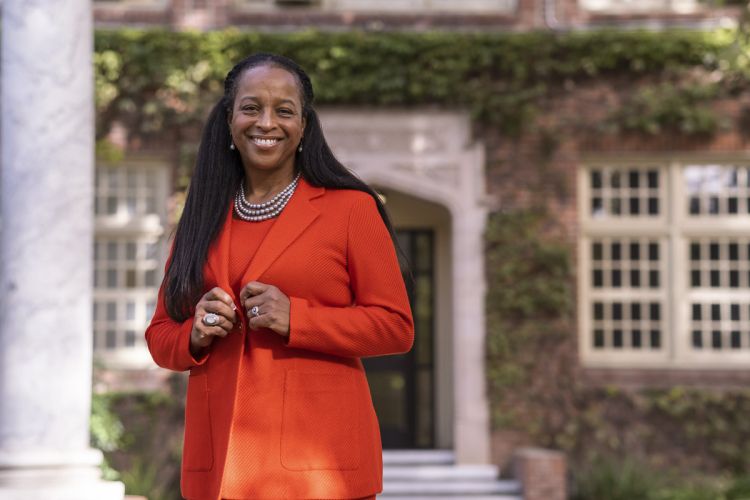Breadcrumb
May Community Letter: Pacific's successful DEI work

May 9, 2023
Dear Pacificans,
An African proverb says, “It takes a village to raise a child.” It also takes a village to become the best student-centric, comprehensive university in the nation—a goal stated by University of the Pacific President Christopher Callahan.
When I came home to Stockton to serve as the inaugural Vice President for Diversity, Equity and Inclusion, I brought the best of what I had learned over the years about inclusive excellence in higher education. I knew Pacific was equipped and ready to establish a shared equity leadership model that embeds and sustains diversity, equity and inclusion (DEI) for years to come.
From the findings of the equity audit from my first 90 days, I knew a collaborative equity leadership approach would empower multiple university leaders—students, staff, faculty and administration—to enact the DEI priorities set forth and approved by the Board of Regents.
We are beginning to see the results of this unique, institutional DEI approach with the completion of Pacific’s first Anti-Racism Challenge. I’m pleased to say we exceeded our goal, with more than 500 students, faculty and staff enrolled in the course.
The Anti-Racism Challenge was the first university-wide DEI teaching and learning endeavor that successfully engaged live and hybrid technologies into a three-city model. Designed and curated for Pacificans and by Pacificans, our students, faculty and staff taught nine modules from Sacramento, San Francisco and Stockton.
In our shared equity leadership approach, DEI is intentionally deployed across the institution to create culture change by connecting individual and organizational transformation. In this way, individuals embrace a personal journey toward critical consciousness to become equity-advancing leaders themselves first.
Among the many Pacificans who participated in the Anti-racism Challenge, I am grateful to our deans for modeling how shared equity leadership is demonstrated in their work: Nader Nadershahi, Lee Skinner, Michael Hunter Schwartz, Elizabeth Orwin, Peter Witte, Charles Moses, Niraj Chaudary, Patricia Campbell and Nicoleta Bugnariu.
The facilitators for the Anti-Racism Challenge were ASuop President Angel Zhong, Jasmeet Kang, Madhu Sundarrajan, Gabriel Soto, Arthur Lui, Professor Zélie, Francis Mootz, Larry Levine, Mariam El-menshawi, Kara Hunter, Rolly Kali-Rai, Kim Montenegro, Marcia Hernandez and Xiaojing Zhou.
The curriculum team and weekly managers for the Anti-Racism Challenge were Jessica Tinklenberg, Lloyd Curtis, Ciara Swan, Veronica Wells, Allison Dumas, Christian Cordoba, Jose Flores-Jiminez, Valerie James, Melissa Yamanaka, Alyssa Wray, Anabela Bettencourt, Mary Nevis, Elisabeth Quijano and Shawn Kerns.
In April, I traveled to Baltimore to accept the Individual Leadership Award on behalf of the National Association of Diversity Officers in Higher Education. The Individual Leadership Award is presented to a seasoned leader for outstanding contributions in research, administration, practice, advocacy and policy, and whose work informs and advances the understanding of diversity, equity, and inclusive excellence in American higher education. This recognition is the most important individual award given by my peers for exceptional contributions made to the DEI field.
Our collaborative and shared equity leadership model matters because it works. DEI work is more than a few signature initiatives or high-profile persons in the field, but rather it’s a village of Pacificans working together to find their purpose and voice for inclusive excellence. DEI work involves everyone.
I am grateful to bring this distinguished national award home to Pacific where I began and where it belongs.
Warmly,
Mary J. Lomax-Ghirarduzzi
Vice President for Diversity, Equity and Inclusion
Professor of Communication


